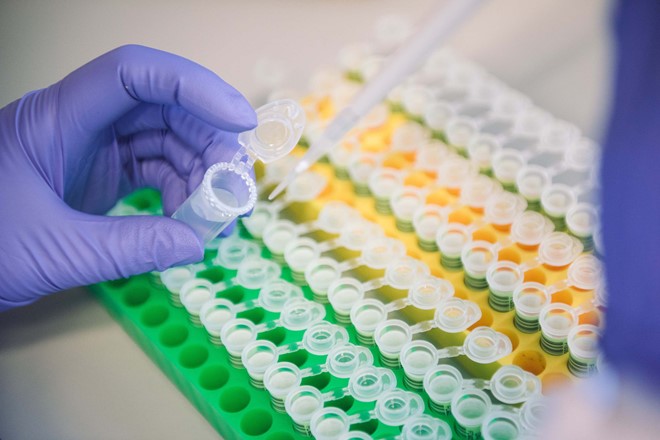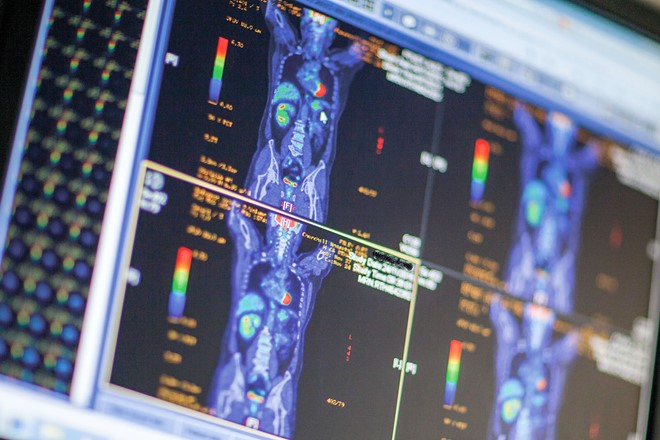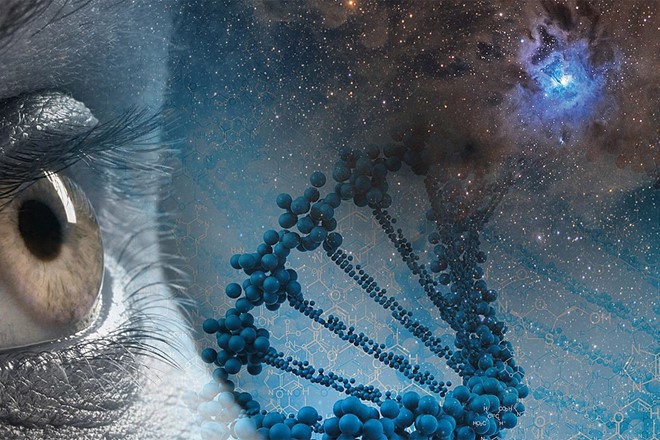Syncona speaks to Achilles Therapeutics' clinical founder Charlie Swanton about his career, the advent of immunotherapy, and what he wants Achilles to achieve.
Achilles is one of Syncona’s ‘Third Wave’ cell therapy portfolio companies. Its mission is to develop next-generation, patient-specific therapies that harness the immune system to destroy cancer cells.
Q. What led you to focus on oncology in your career?
I had indirect exposure to cancer at a reasonably young age. My father was diagnosed with high grade B-cell lymphoma in the early nineties, in my first year in medical school. At the time I was looking at a career in medicine, but didn’t exactly know what to do. Seeing him go through the diagnostic pathway, treatment with radiation, chemotherapy and then cure; and now, 25 years later, where he is still working in the NHS, it was pretty remarkable. I thought it would nice to do something in this field which would make a tangible difference one day.
“We've seen the growth in immunotherapies in this disease, which are already having a tangible benefit for patients in terms of overall survival improvements, but we think we can do better.”
Q. Can you tell us about the Science behind Achilles?
The business was set up two years ago now, after a chance meeting between myself and the other founders and (Syncona Managing Partner) Iraj Ali. The fundamental basis of Achilles is that currently cancer drugs are relatively ineffective, very expensive and for the most part with some exceptions, they are not curing patients with end-stage metastatic disease.
Our work, and that of others, has shown that this [ineffectiveness] happens because cancers are continuously adapting and evolving in the patient spatially and longitudinally (that is, temporally, during the time course of the disease). But there are rules to the engagement, as it were, and that is that there are very early mutations present in every tumour cell that act as signals or flags to the immune system, that we are not currently targeting as efficiently as we might be.
The premise behind Achilles is that we would use those flags, those mutations, that are present in every tumour cell, rather than the 'branch' mutations that are only present in some cancer cells – and focus on targeting the trunk mutations by finding immune cells in the patient’s tumour that would essentially be the solution to the problem. We could expand those and give back to the patient in overwhelming numbers; that would tackle mutations present on every tumour cell and ultimately hopefully eradicate the tumour at its trunk.
Q. Building on that, what’s your vision for Achilles?
The vision is very simple, I want to cure patients with lung cancer, that’s my overarching goal, that’s the problem I face in the clinical setting, it’s the problem I try to tackle in the lab.
It’s a disease that kills 44,000 patients in a year in the UK and millions worldwide. It’s a predominantly smoking-induced cancer that has had very little investment over the last five decades. Now there is growing enthusiasm about our ability to tackle this. We’ve seen the growth in immunotherapies in this disease, which are already having a tangible benefit for patients in terms of overall survival improvements, but we think we can do better. The whole premise of the Achilles is to do just that, we will use immune cells from the patients’ own tumours to target mutations present in every tumour cell to annihilate the disease at multiple sites of the disease.
Q. What has fundamentally changed in the landscape for new therapies like immunotherapy to the fore?
The problem in our area is that every tumour evolves in a different way, which means there are one or possibly two trunk mutations that are shared between patients with the same type of disease.
No pharmaceutical intervention as I know it today, can [solve this problem] without the body’s own immune system. This is the only solution I can think of that will target multiple truncal events present in every tumour cell, within a timeframe to cure a patient.
Q. What does your clinical experience add in the academic and business setting?
First of all, identifying the right question is critical. It’s got to be a question relevant for mankind in health-economic terms, that is viable within a time-frame that will achieve a therapy that will cure a patient we hope in months or short years. Then there’s the fact that in medicine we are very used to working in teams, in science it is more of a lonely pursuit – and business can also be a lonely pursuit, but what I think the clinical instincts bring is the importance of teamwork. One lab cannot provide all the solutions, we have to work together to achieve the goals of cure in cancer.
What that means, and where I have been very fortunate, is to work with the three other founders in the company, Sergio Quezada, Mark Lowdell and Karl Peggs to develop something where the whole is greater than the sum of the parts, so we have experts in immunotherapy, we have experts in t-cell biology, we have experts in the delivery of these therapies.
What I hadn’t realised is how difficult it would be to get a crazy scientific idea, created amongst the four of us, and put it into the commercially viable structure of Achilles today. That’s where [Syncona] came in, who essentially deconstructed this crazy scientific idea and put the pieces back together within a framework that made commercial sense.
“Identifying the right question is critical. It’s got to be a question relevant for mankind in health-economic terms, that is viable within a timeframe that will achieve a therapy that will cure a patient we hope in months or short years.”
Q. What have you found most challenging and what are you most excited about?
I love the challenge of teamwork, I love working in a team where I am constantly learning new things.
I’ve learnt a lot from the commercial reality of getting, let’s say, a bioinformatics pipeline that we have in an academic setting into a commercial one. That has required patience on both sides and friendships, deep friendships, which have evolved over the course of the last two years and a mutual understanding of what we are all trying to achieve here, which is a common goal of achieving cures. That’s what gets us all out of bed in the morning and what puts a smile on our face, that this might be something that we can turn into reality. Really that is what drives us all and when we are all motivated by the same vision, everything else fits into place.
I’d like the T-cell therapies which we are developing to cure just one patient with end-stage metastatic disease, that to me would be a major achievement. If we could do any more than that it would be amazing, but to cure one patient would make all of this worthwhile.



